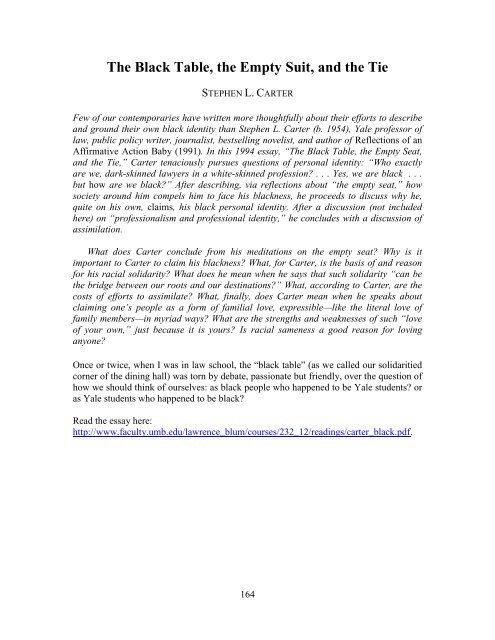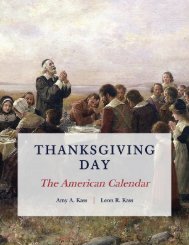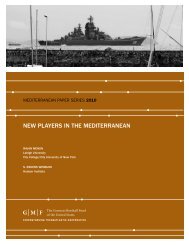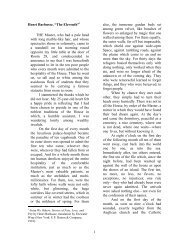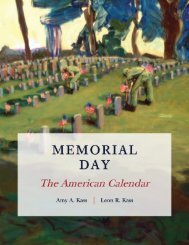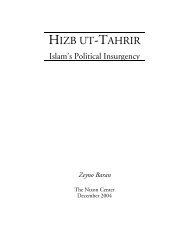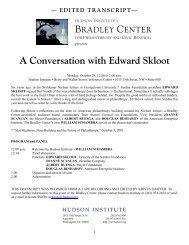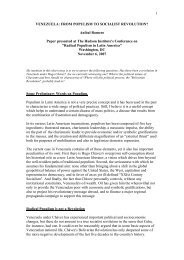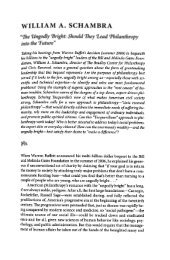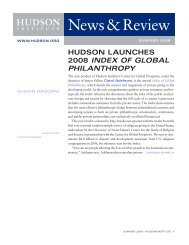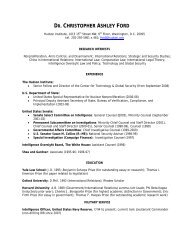Download PDF - Hudson Institute
Download PDF - Hudson Institute
Download PDF - Hudson Institute
Create successful ePaper yourself
Turn your PDF publications into a flip-book with our unique Google optimized e-Paper software.
The Black Table, the Empty Suit, and the Tie<br />
STEPHEN L. CARTER<br />
Few of our contemporaries have written more thoughtfully about their efforts to describe<br />
and ground their own black identity than Stephen L. Carter (b. 1954), Yale professor of<br />
law, public policy writer, journalist, bestselling novelist, and author of Reflections of an<br />
Affirmative Action Baby (1991). In this 1994 essay, “The Black Table, the Empty Seat,<br />
and the Tie,” Carter tenaciously pursues questions of personal identity: “Who exactly<br />
are we, dark-skinned lawyers in a white-skinned profession? . . . Yes, we are black . . .<br />
but how are we black?” After describing, via reflections about “the empty seat,” how<br />
society around him compels him to face his blackness, he proceeds to discuss why he,<br />
quite on his own, claims, his black personal identity. After a discussion (not included<br />
here) on “professionalism and professional identity,” he concludes with a discussion of<br />
assimilation.<br />
What does Carter conclude from his meditations on the empty seat? Why is it<br />
important to Carter to claim his blackness? What, for Carter, is the basis of and reason<br />
for his racial solidarity? What does he mean when he says that such solidarity “can be<br />
the bridge between our roots and our destinations?” What, according to Carter, are the<br />
costs of efforts to assimilate? What, finally, does Carter mean when he speaks about<br />
claiming one’s people as a form of familial love, expressible—like the literal love of<br />
family members—in myriad ways? What are the strengths and weaknesses of such “love<br />
of your own,” just because it is yours? Is racial sameness a good reason for loving<br />
anyone?<br />
Once or twice, when I was in law school, the “black table” (as we called our solidaritied<br />
corner of the dining hall) was torn by debate, passionate but friendly, over the question of<br />
how we should think of ourselves: as black people who happened to be Yale students? or<br />
as Yale students who happened to be black?<br />
Read the essay here:<br />
http://www.faculty.umb.edu/lawrence_blum/courses/232_12/readings/carter_black.pdf.<br />
164


